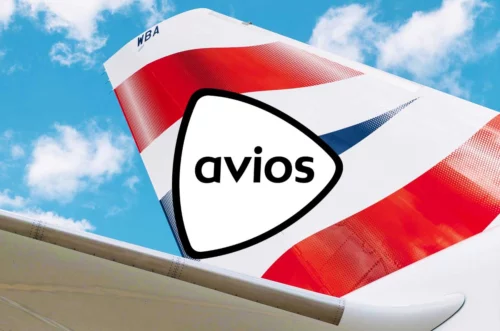BA CEO expects no reduction in elite British Airways Club members
Links on Head for Points may support the site by paying a commission. See here for all partner links.
Ten days ago, IAG (owner of British Airways, Iberia, Aer Lingus and Vueling) announced its first half results for 2025.
I won’t bore you with all the details, just to say that it is doing well, with a 44% increase in operating profit to €1.9 billion. Passenger numbers fell (IAG’s load factor was down 0.9%) but were offset by higher fares and lower fuel costs.
Scattered amongst the financials were some interesting tidbits about British Airways, including how The British Airways Club is doing and what is going on behind the scenes with regards to the IT upgrades that have been touted for years.

Have The British Airways Club changes affected the airline?
I don’t think I need to repeat our own views of the changes that have happened to The British Airways Club, which by now most of you should be familiar with!
The move to revenue-based tier point earning and the new tier thresholds have led to much gnashing of teeth, not just for Head for Points readers but also more widely, with The Times, Telegraph and many other publications bemoaning the changes and how they affect you.
That said, Sean Doyle says the changes have not materially affected the airline’s overall revenue, although it’s arguably too early to tell:
“Our Club revenue is performing in line with our broader network. So there is no discernible difference between the revenue coming through people who are members of the Club and the revenue coming through our wider network, and it’s growing in line with the capacity that we’ve expanded the airline by.”
It will be interesting to see what happens early next year, particularly from the 1st May 2026 onwards. This is when anyone who earned status under the old system but cannot make it under the new revenue-based model will be downgraded.
Once the key benefits of booking BA – lounge access, seat selection, priority services etc – drop away, will these customers continue to push revenue to British Airways?
What is interesting is that Sean Doyle has confirmed they do not expect to see a big change in the membership levels across the tiers.
This is in contrast to speculation online that the changes were, in part, a way of reducing the overall burden of memberships. Anyone hoping for quieter Heathrow lounges following the changes will be disappointed.
Here’s what Sean Doyle had to say regarding the changes:
“I think we are in a transition phase. What we are seeing is people who were booking high-quality revenue in Holidays are getting tiered earlier, and we expect our tier sizes to be broadly at the same level they were pre-change, but there will be some people who get in there who didn’t used to get, and some people will drop out who were in those tiers historically. So that’s part of the transition that we are forecasting and expecting.”
Fundamentally, a deliberate decision was taken to ‘fire’ some customers and replace them with higher spending ones.
The key is whether giving status to people who previously spent a lot of money but not in the right way will make them spend even more. After all, these people were clearly happy to spend in the first place without the status carrot. British Airways has clearly lost revenue from some people who know they will lose status.
It is also worth noting that BA has a habit of rolling over elite status for selected members who were going to lose it, if it looks like it will be a little thin in certain elite tiers. This isn’t just a BA thing – most airline and hotel groups do the same. If too few people earn Gold, it’s not an issue to roll some over which also helps reduce pressure on the Club lounges.

It’s all about British Airways Holidays
Reading between the lines, the biggest incentive British Airways has is to supercharge its BA Holidays division. Packages are far more profitable for airlines as they can bundle up flights, hotels and more in a single booking, increasing margins in a capital-light way. Compared to selling flights this is a lucrative market.
Although IAG does not break down revenue for British Airways Holidays, it did move the division to IAG Loyalty last year, the group’s high-growth but capital-light (let’s forget The Wine Flyer for a minute!) department.
With aviation capital intensive and highly competitive, it’s clear that IAG sees its future more akin to the US airlines, where profit-making loyalty divisions effectively subsidise the airline operations. With UK credit card margins so low, however, it is never going to become Delta, which receives $2 BILLION from American Express every three months.
One of the changes to The British Airways Club was to increase the incentives to book BA Holidays by uncapping the maximum number of tier points you can earn.
According to IAG Loyalty CEO Adam Daniels, the changes do appear to be having an affect:
“We are seeing an increasing number of the BA Club members start booking British Airways Holidays, and we’re seeing that in terms of the quality of revenue that’s coming as a result. So certainly, those people that are doing that are increasing their chances of retaining and, in fact, going to the next tier as well.”
It’s not clear if those people booking actually understand the new tier point system though. The lead booker does NOT get the tier points – they are spread equally across all passengers including children. Not giving a BA Club number for the other passengers doesn’t change things – the points are still split with non-members losing their share.
Even spending £20,000 with British Airways Holidays would not be enough to obtain Silver status if two adults and two children were travelling.
The only loophole is to book a holiday for one person and book separate flights for other passengers. This appears to be so prevalent that a warning has been added to the BA Holidays T&C about what will happen to you if this is discovered. Booking a room that can sleep four people and only one flight is likely to be a red flag ….
Dynamic pricing and BA’s digital transformation
Sean Doyle has long been talking up the airline’s investment in IT and digital infrastructure, some of which is over 25 years old and in dire need of modernisation.
A new website and app (coming later this year or early 2026) is the most visible part, but BA has also just completed a major behind-the-scenes upgrade of its revenue management system. (Not entirely smoothly – Avios availability has been all over the shop for several weeks, in both good and bad ways.)
Three upgrades have taken place recently:
- The new revenue management system, which went live in early July
- A new check-in system, moving from BA’s propriety FLY system to the off-the-shelf Amadeus system
- A new payments platform
All three are “critical enablers of the broader digital transformation”.

In terms of what that means for you, the customer, you should expect to see more options to upgrade and more flexibility in how BA prices its flights.
“One of the big benefits of new revenue management system is our ability to implement what we call dynamic pricing. So historically, airlines would be limited to the number of letters in the alphabet in terms of inventory buckets.
And our ability to do trade-up pricing between those selling classes was relatively – I wouldn’t call it clumsy, but limited. Now we can put a lot more step-ups and trade-ups into our pricing ladders. And it’s too early maybe to give you an assessment of the impact. We’re only trialling it for the last three weeks, but my teams are very excited about its potential.”
Airlines were the pioneers of dynamic pricing based on demand, which is why the same flight can cost vastly more or less on different days. What Sean Doyle refers to here is the airline’s ability to offer seats at different prices, with much more granular control. This will allow the airline to step up pricing on an almost seat-by-seat basis rather than in large fare blocks (‘10 seats at £50, next 10 seat at £75’ etc).
“So broadly speaking, we’re on track. We’re very happy with the rollouts that we’ve implemented. And in terms of our kind of expectations versus our original plan, we’re where we need to be.”
Other bits ….
A few more interesting updates I thought worth sharing:
- The new Avios partnership with LeShuttle, announced two months ago, has resulted in more than 26,000 Avios bookings made and 15 million Avios earned in that period
- IAG says the new BA lounges in Miami and Dubai are expected to open by the end of the year, well behind schedule, as are unspecified “lounge upgrades at our hubs”
- British Airways on time performance has increased by 7.7% since last year, to 83.2% of all departures leaving within 15 minutes of the scheduled time. Iberia still leads the group with an average of 89.8%.
- The half year report says “As of 29 July we are 57% booked for the second half”. Coincidentally, the cut-off was just after BA concluded the most aggressive Avios redemption sale we have seen since the pandemic, with 40% to 45% off many routes.


 Rhys
Rhys 





Comments (207)